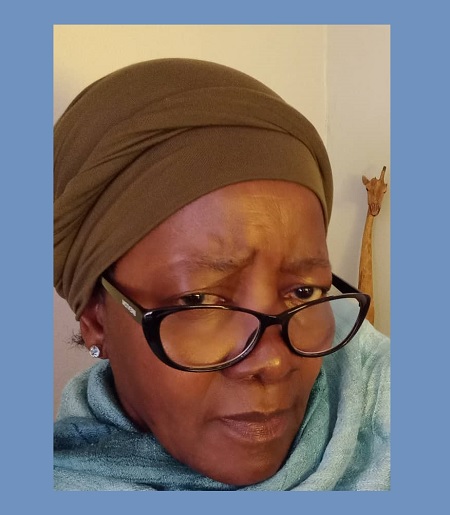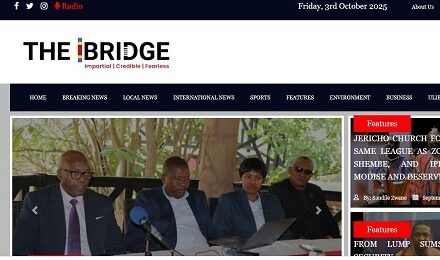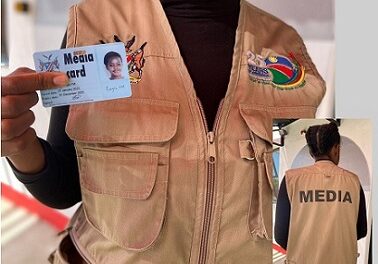
By Victor Angula |
At 70 years, Johanna Kahatjipara would ordinarily be enjoying her retirement by spending time with her grandchildren and taking afternoon naps like most retired persons.
Someone at her age would normally sleep at night with peace of mind knowing that she worked hard during her youthful years to be able to afford the roof over her head.
However Kahatjipara spends much time during the day and at night fighting the sharks and vultures which are trying to steal the roof over her head, such that she is hardly enjoying her retirement.
And her opponent is none other than First National Bank (FNB Namibia) who initially afforded her the opportunity to acquire her home through a housing loan more than ten years ago.
When contacted by Omutumwa, Kahatjipara told Omutumwa about the harrowing story of her exhausting struggle – wrestling with a corporate multinational company (FNB) that feeds on vulnerable members of society.
According to Ms Kahatjipara’s grievance the scandal has all the hallmarks of fraudulent activities by FNB employees colluding with the Bank’s management.
She says that the scam was started by the Bank in order to defraud her of her house or to increase her housing loan in a fraudulent manner so that she would not be able to pay off the loan after she had retired – and make way for the Bank to repossess the same house.
She says “A re-advance loan was fabricated in my name under the pretext that I came to request a N$60, 000 loan [to make renovations to the house]. This inflated my home loan with +-N$200,000 to make it impossible for me to settle the mortgage at retirement on 31 July 2017.”
According to her she never set her foot in any FNB branch to request for such a “re-advance” loan, and she has proof about her whereabouts on the day the re-advance application was supposedly made by her.
A “re-advance” is a loan within a housing loan, whereby the bank provides money to be used for the renovations or improvements on the same property which was bought through a loan that is still not paid off.
Kahatjipara bought the house in Windhoek’s Tauben Glen, Hochland Park, at the time it had the value of N$825,000 in January 2010, and she moved in when ownership was transferred to her name in June 2010.
Today the house is estimated to be valued at more than N$2 million.
Kahatjipara only came to know about the re-advance fraud when on 9 May 2017 she received a telephone call from someone saying that she wanted to come over and do a valuation of the house.
“The caller dropped the phone in my ear when I queried her about her motive since I never made any arrangements with my bank concerning the valuation she was talking about,” Kahatjipara relates.
“So I called the bank’s property valuation department, and someone informed me that the valuation was necessary in regard with the guarantee provided by my employer since I was about to retire.
“The next day I went to the bank to make further inquiries. That is how I got informed that apparently there was a re-advance application I had done way back in 2013.”
In order to provide her with “proof” of her application for the re-advance loan, FNB’s employees went in a rush for a few days in June 2017 to fabricate documents which they backdated to April 2013, scanned an old signature of Kahatjipara, copied a copy of her passport [which was already in their possession as a result of her being a client of the bank for many years], and then they stood their ground saying that she had indeed applied for the loan she was contesting.
A few months later, to Kahatjipara’s shock and dismay, she was greeted by the same monster at the FNB Credit Card department.
“Multiple Gold Credit card accounts, a Gold Cheque account and a petrol card were opened in my name under the pretext that I requested these facilities,” she states.
“Actually these were done in 2017 almost 3 months before my retirement and then back-dated to 2013 April 5 and 28, 29, and 31 October 2013 respectively.”
“Signatures of mine in the possession of the bank or elsewhere, were forged, possibly by scan copy-pasting on fabricated loan application documents in my name by employees of the Bank.”
Questions sent by Omutumwa to the office of the Chief Executive Officer of FNB Namibia, Mr Erwin Tjipuka, were forwarded to Mr Taswald July, the company’s legal advisor. July told Omutumwa telephonically that Ms Kahatjipara’s case is in court, so that he would not say anything in regard to it.
In documents filed with the High Court in Windhoek, Namibia, FNB Namibia has indicated intention to oppose the matter and will provide proof that indeed Ms Kahatjipara had made the re-advance application, she had received the money and she had spent the money.
The re-advance application form of the loan in dispute (in possession of Omutumwa) shows that Ms Beatrice Olebile filled in the form and dated it 5 April 2013. After she filled the form Olebile also acted as the first “witness”, while a fellow employee of FNB Ms Yvonne Eichas was the second witness.
And, Kahatjipara’s signature (who was supposedly the applicant of the loan) only appears once on the form, appearing only where it indicates that she is the first witness (“For and on behalf of the customer”), but without another witness on her side.
In addition, some of the vital information were not filled in on the form, such as ‘title’ and initials of the applicant, her occupation, and proof of income. The name of the employer of applicant is just indicated as “Unam” instead of the formal name: University of Namibia, while the ID number of the applicant was filled in although the document used in processing the application was her passport – and the expiry date of the passport was not filled in on the form.
At ‘Section F’ on the form (Nominated Account Details [for funds transfer – account to be linked]) the name of the account holder was not filled in, neither the bank name, branch name nor branch code, but only the account number was filled in. At the spaces of “Entered Into by and between FNB Namibia Ltd and Full Name(s) of Customer(s)”, the customer’s name was not filled in.
And then at ‘Section H – Consent of Guarantor/Surety (if applicable)’ where supposedly the employer of applicant was needed, nothing was filled in.
And finally the Bank’s credit manager Ms Yolanda Hannetjie Coetzee signed the application form to approve the re-advance loan of N$60,000.00 on 12 April 2013 although a valuation of the property (contrary to the terms indicated in the “agreement”) was not done.
Meanwhile, despite the fact that here is a vulnerable woman who is embroiled in a fight to keep possession of her house, none of the local media have shown interest in the matter.
In fact Kahatjipara says that the media she approached refused to publish her story.
When approached for comment the deputy news editor for Namibia’s biggest daily newspaper, The Namibian, Ms Theresia Tjihenuna told Omutumwa that she could recall that she had a discussion with a daughter of Ms Kahatjipara some years ago.
“But it’s not that we turned them away or refused to publish the story. Usually if people make such allegations as that of fraud we might have requested them to provide more information, or to advise them to first open a case at the police before we can publish the story,” Ms Tjihenuna said.
“In which case, I think, they didn’t come back. It’s not that we turned them away.
“But since the case is now in court, then this is a story for us. Definitely we will now follow up on this matter.”
Kahatjipara’s case will come back in the High Court of Windhoek on 28 July 2022.
In the photo: Ms Johanna Kahatjipara who is taking on FNB in a dispute over her house.






